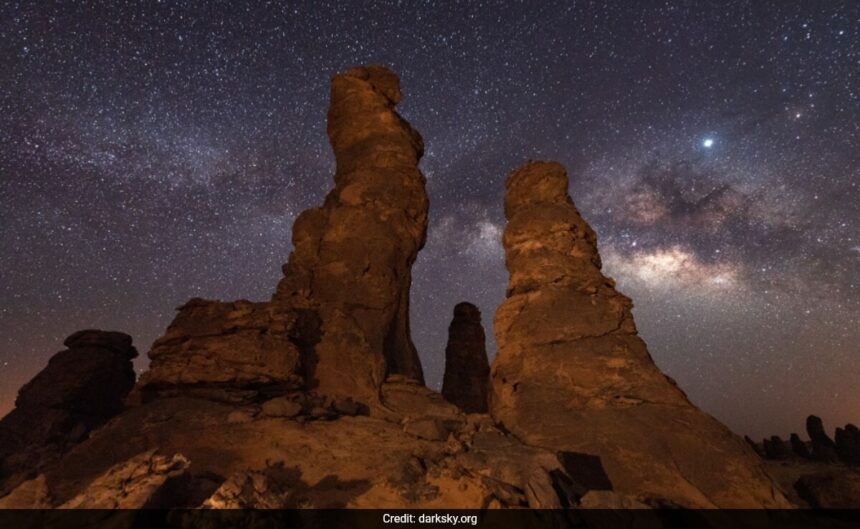Astrotourism has become a popular trend globally, with many countries focusing on preserving dark skies for stargazing enthusiasts. In the United States, the National Park Service reports that stargazing tourists contribute billions of dollars annually through various activities such as accommodation, dining, and equipment rentals.
In West Asia, Saudi Arabia is making significant investments in dark sky conservation and sustainable tourism. With its vast desert landscapes and minimal light pollution, the Kingdom is well-positioned to attract travelers seeking to experience the wonders of the night sky.
The country is placing a strong emphasis on astrotourism, with AlUla Manara and AlGharameel Nature Reserves already being recognized for their pristine nightscapes. Additionally, the Red Sea Destination project, covering an area the size of Belgium, is set to become the largest designated Dark Sky Reserve in the Middle East.
To protect the night sky, Red Sea Global, the developers behind the project, are collaborating with lighting experts to adhere to strict light pollution guidelines. Advanced lighting solutions such as shielding light sources, directing fixtures downward, and using warm-colored lights are being implemented to preserve natural darkness. The first resort in the destination, Six Senses Southern Dunes, has already achieved Dark Sky compliance.
Saudi Arabia is also integrating its rich Islamic astronomical heritage into the astrotourism experience. By highlighting how celestial objects were used for navigation to Mecca and timing of rituals during Hajj season, the country is bridging astronomy with cultural traditions. Other experiences will focus on moon phases and the Hijri calendar, offering visitors a unique blend of science and heritage.
While astrotourism presents economic opportunities, it also brings challenges such as increased visitor numbers contributing to light pollution. Red Sea Global plans to cap visitor numbers at one million annually and implement conservation initiatives to protect wildlife and ecosystems. Saudi Arabia’s low population density of just 15 people per square kilometer gives it a natural advantage in limiting light pollution.
For stargazing enthusiasts like Sara Sami, Saudi Arabia remains a top destination due to its beautiful natural landscapes and pristine night skies. With major Dark Sky projects and a commitment to sustainability, Saudi Arabia is establishing itself as a leader in astrotourism, offering visitors an unparalleled celestial experience.








